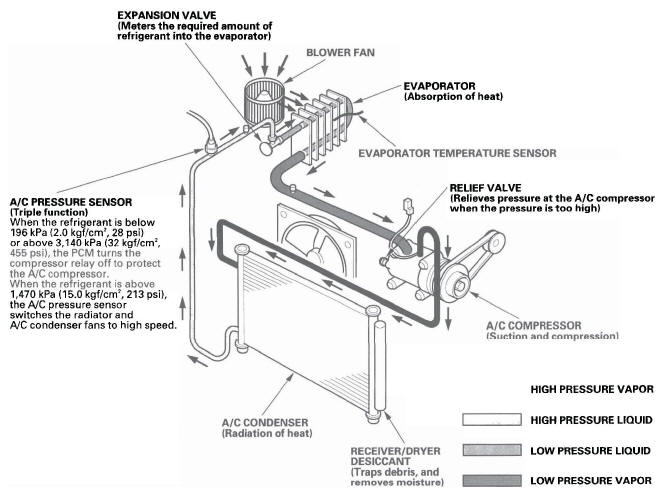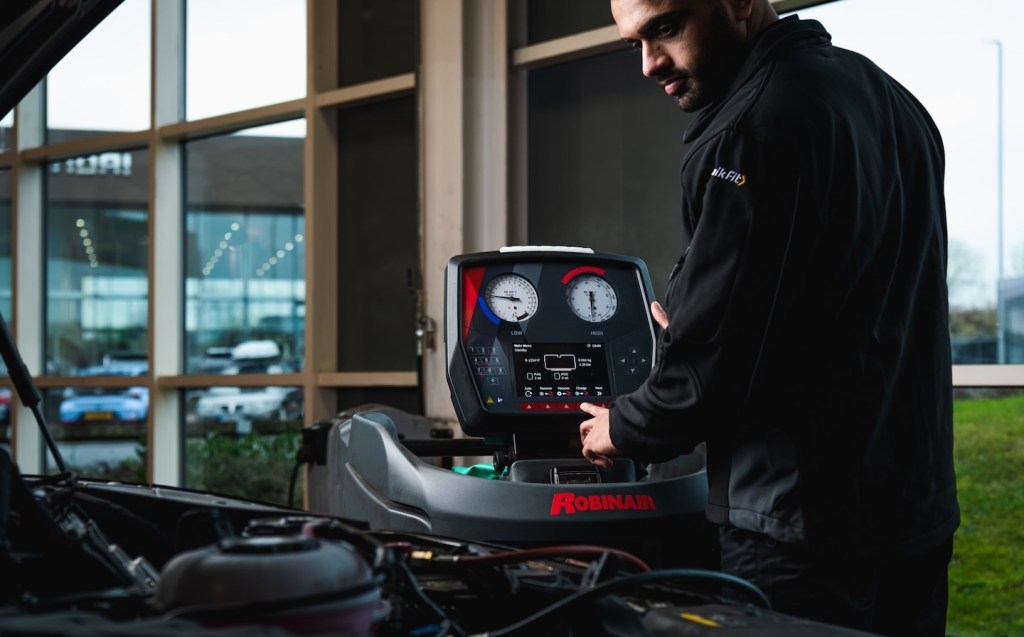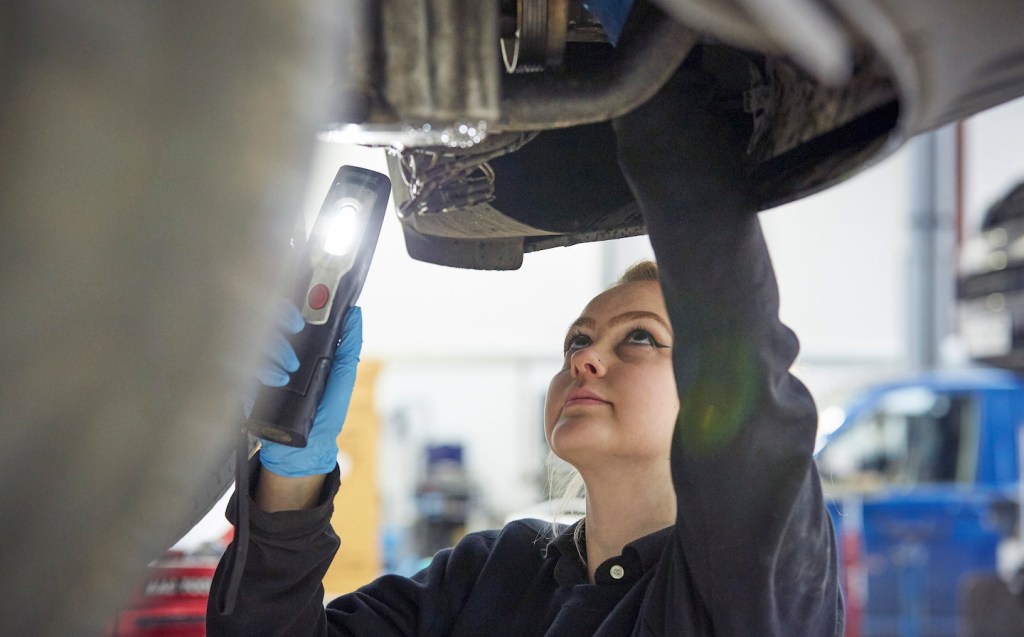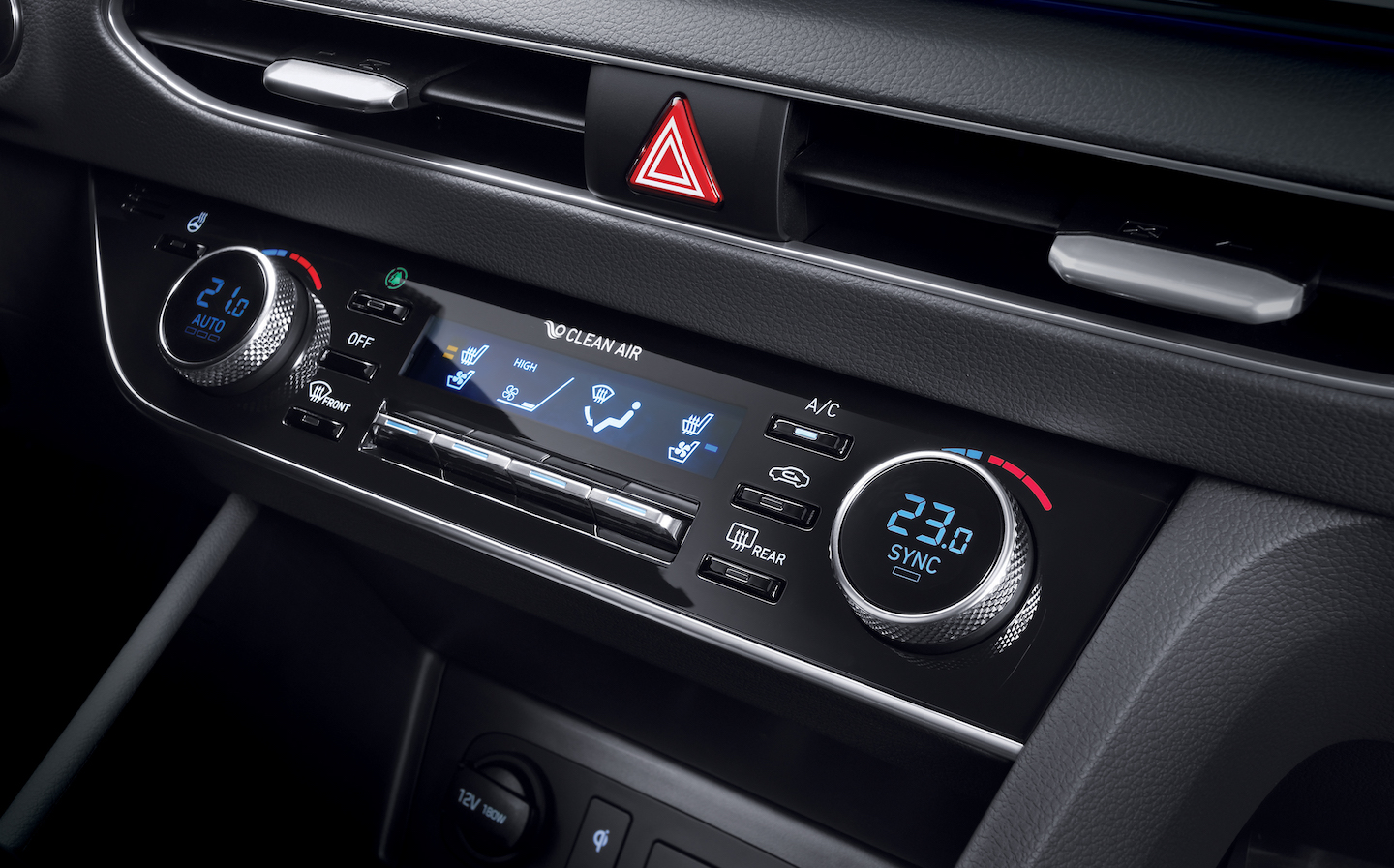Why your car's air conditioning is blowing hot air, and how to fix it
Not just a load of hot air
Once an expensive luxury, air-conditioning is now fitted as standard to the majority of new cars and we rely on it not only on hot summer days but also during rainy months, when it helps clear condensation. Which is why you really notice when it stops working.
So what can you do if your air-con fails? Is it an easy fix or are unlucky drivers in line for a major repair bill? Here’s our handy guide.
Possible reasons for broken air conditioning
Assuming all your controls are set to cold, if your air conditioning is blowing hot air on warm days, it’s obviously a sign of a problem, which could be caused by several issues.
1. Low refrigerant levels
The most common reason an air-conditioning system won’t work is due to low refrigerant levels.
Air conditioning in cars works just like your refrigerator at home, whereby a chemical with an extremely low boiling point known as a refrigerant passes through an “evaporator”, where it absorbs heat by turning from a liquid to a gas (think of how water evaporating off your skin cools you down), before being pumped outside and into a “condenser”, where the gas turns back to a liquid and heat is lost into the atmosphere.

If you’re out of refrigerant the system simply won’t work, but besides being the cooling agent, it it also lubricates many of the moving parts in the climate control system and so cars may prevent the AC from turning on when the fluid is low, to avoid (expensive) damage.
There are two probable reasons why refrigerant levels might be low:
- If the system is unused for long periods, the rubber seals can dry out, leading to fluid slowly leaking out and evaporating. Often this is only temporary, as seals regain their integrity once the system is on and fluid is circulating. This is why turning the AC on for 10 to 15 minutes every week, even during periods when you don’t need it, is important.
- It’s also possible that a faulty component has recently developed a leak or a seal has failed completely, which will need to be identified and repaired before the system is refilled.
2. Electrical system issues
It’s possible that your air-con system is in otherwise good condition and that there may simply be a problem with a blown fuse, frayed wire or faulty switch.

Depending on the age and complexity of your car, this could be a relatively simple and inexpensive job. Whether you choose to do it yourself or bring your car to a mechanic or auto electrician, solving electrical problems is usually a systematic process of elimination.
3. Faulty compressor
The air compressor is the heart of an air-conditioning system. It pumps the refrigerant round the system, through the condenser and evaporator coils. If the compressor experiences an internal fault, the air-con in your car will not work at all.
Compressor issues often manifest themselves after long periods of inactivity.
To check whether your compressor is working or not:
- Start the engine from cold with the air-con off.
- Ask someone to turn on the air-con while you stand by the open bonnet.
- Listen for a click. If you don’t hear one within a few seconds, your compressor is either faulty or not turning itself on because you’re out of refrigerant, to avoid potential damage to the system.
4. Faulty condenser
A condenser is like a mini-radiator (more correctly called a heat exchanger) which releases heat into the air outside the car and thereby cools the gaseous refrigerant inside, turning it back into liquid.
It’s usually located towards the front of the car near the grille, to benefit from airflow. If the condenser becomes clogged, or is damaged by debris or in a frontal crash, it (and thus the rest of your AC system) may not work correctly.

How can broken AC be fixed?
Most air-con problems can be solved with a simple “re-gas”, which involves refilling the system with refrigerant. An AC service may also be necessary to tighten up or lubricate anything that looks loose or dry.
Fixing electrical problems may require process-driven diagnostics to locate the issue, bypassing different parts of the system until the culprit is found.
Issues with compressors or condensers may be more serious and require the replacement of major parts of the air-con system.
How much will it cost to repair air-con?
An air-con service or re-gas can cost between £30 and £200 depending on the level of work or the level of replacement refrigerant required.
As a rule of thumb, vehicles manufactured before 2014 will use R134A refrigerant, while cars manufactured after January 2017 will use the more eco-friendly R1234YF. The latter is far more expensive to refill.
For other issues, prices will depend on how long it takes to diagnose the problem, how labour-intensive it is to replace and the cost of replacement parts — all factors dictated by the garage you use and the type of car you have.
Where can it be fixed?
Major automotive retailers such as Halfords will often have re-gassing equipment, but you may be better off taking your car to a garage instead as a mechanic will usually be able to check your system for leaks through a pressure test and by using a UV light.
There’s little point in re-gassing an air-con system if all the refrigerant is going to leak out, though some garages may try this first and ask you to come back if the air-con fails again, as it’s a quick and fairly cheap procedure and often sorts the issue.
Air-con systems are a relatively simple part of a car’s mechanicals so you won’t necessarily need to use a franchised dealer to carry out the repairs; any competent mechanic should be able to diagnose and fix the issue.
Related articles
- After reading about how to fix your car’s air-conditioning, you might like to read our top tips for improving fuel economy
- Also check out our guide to synthetic e-fuels
- And click here to see all the car makers’ electric vehicle plans
Latest articles
- Should I buy a diesel car in 2025?
- F1 2025 calendar and race reports: The new Formula One season as it happens
- Zeekr 7X AWD 2025 review: A fast, spacious and high tech premium SUV — but someone call the chassis chief
- Denza Z9GT 2025 review: Flawed but sleek 1,062bhp shooting brake from BYD’s luxury arm
- Extended test: 2024 Renault Scenic E-Tech review
- Best-selling cars 2025: The UK’s ten most popular models of the year so far
- Audi A6 Avant 2025 review: Trusty executive estate ticks expected boxes, and there’s still a diesel option
- Keir Starmer eases pressure on carmakers to sell EVs in response to ‘global economic headwinds’
- Ferrari 12Cilindri Spider review: Heady blend of traditional and futuristic becomes even more intoxicating after lid is removed














